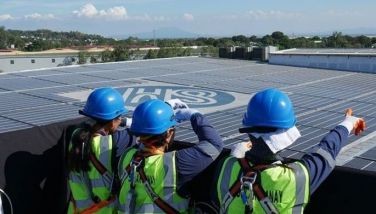Don’t show them the door

Choosing where to invest is like a scenario of deciding which restaurant to dine in. For example, restaurant A and restaurant B both serve excellent food, both are accessible despite the traffic, and both have waiters who understand you quite well. What chance will restaurant B have over restaurant A if cooking time in restaurant B takes 15 to 20 minutes longer, and the food in restaurant B is more expensive by a third compared to A’s menu? Answer: If restaurant A is already full for the evening, you would go to restaurant B, ready to wait, ready to pay more, even if the food is just as good. Or, wait for another date to get into restaurant A.
If inviting foreign investors or inviting investments for that matter is a business, then the Philippines versus its neighbors in Southeast Asia would be restaurant B. There is a good market here, good people, but expensive and complex.
The Tax Reform for Attracting Better and High-quality Opportunities or TRABAHO bill would gradually decrease the income tax rate, that is: the income tax rate in the initial year of implementation will be 28 percent, until it is lowered to 20 percent sometime in 2029 or 2030.
On the other hand, the emasculation of incentives is immediate. The five percent special tax rate in economic zones for new registrants shall be increased to 18 percent of net income, and an accelerated phase out period for already registered ones shall be implemented.
Back to the restaurant analogy – restaurant B doesn’t have to say it, but you hear it anyway: “If you do not like dining here, there’s the door”. How would the customer feel?
There are new challenges and higher costs that are still to come for an investor. In the proposed bill on taxation on passive income and financial institutions, here are some of the increases in price tag that are going to be felt:
Individual dividend tax goes up to 15 percent (from 10 percent) even as capital gains tax already increased to 15 percent earlier. Elsewhere in the region, capital gains is exempt from tax while dividend tax is lower (Indonesia and Thailand at 10 percent, Vietnam at fove percent) or exempt (like Malaysia Singapore and Myanmar).
This is critical in decision-making as any investor sums up the corporate income tax and dividend tax that it will have to pay while operating, and the capital gains tax it will have to pay when exiting. Cost to do business plus exit costs are hurdles and are compared by the investor.
Improperly accumulated earnings tax (IAET) even goes up from 10 to 15 percent. We are the only country in the region and pretty much in the rest of the world (save for two other countries) that impose IAET. Other countries don’t encourage money to go out once they come in.
Government wants to collect the dividend tax. So there is an easy way to reconcile this problem. Once IAET has been assessed, dividend tax when declaration happens in the future should no longer be assessed because the tax take of the government becomes an effective 30 percent dividend tax. Not the intent? Then let’s have this adjusted in the bill.
FCDUs and OBU exemptions are being taken away in the bill. The DOF may actually be right that we have sufficient foreign exchange coming from remittances from our individual heroes called OFWs. And it is true that foreign currency deposit unit (FCDU) and offshore banking unit (OBU) exemptions alone could not deliver the original intention of the legislators to use these to one day develop the Philippines as the financial center of Asia. The question is whether it is wise to remove these institutions as cheaper sources of funds and whether we need these institutions to help our foreign exchange position during bad times, like a regional financial crisis.
From data we can gather so far, FCDU assets saw decline after the 1997 financial crisis. Notably, it was also about this time that exemptions were removed by Republic Act 8424. After the exemption was restored in 2004, FCDU net assets showed year-over-year growth of 10 percent from 2005 to 2010, and FCDU loan levels went to an unprecedented 40 percent growth in 2008 and showed steady growth henceforth. Not saying it’s all about the tax, but isn’t it wise to simply help our healthy foreign exchange position and keep cheap access to funds by not adding friction cost?
It’s not about being unsupportive because we support government efforts to fund Build Build Build. The country needs it. But there is no singular way to do it, and certainly increase in tax bill is not the only way. Sincerely fighting corruption and exacting compliance from the “80 percent” should be on top of the list; the use of PPP (private-public partnership) should be resorted to and maximized for a number of infra projects to offer access to funds and resources not coming from taxes; and relax foreign equity rules to have more foreign participants and healthy competition in infra projects.
Not new stuff, but the point is, one approach is not totally right or totally wrong. The fact is, there is an advantage in using different modalities to achieve success. Get those foreign investments in, temper the taxes, and almost always worry about being competitive. Being business-minded about it is not uncalled for. Instead of showing them the door, let us open the gate.
* * *
Alexander Cabrera is the chairman of Integrity Initiativ, Inc., a non-profit organization that promotes common ethical and acceptable integrity standards. He is also the chairman and senior partner of Isla Lipana & Co./PwC Philippines. Email your comments and questions to aseasyasABC@ph.pwc.com. This content is for general information purposes only, and should not be used as a substitute for consultation with professional advisors.
- Latest
- Trending























